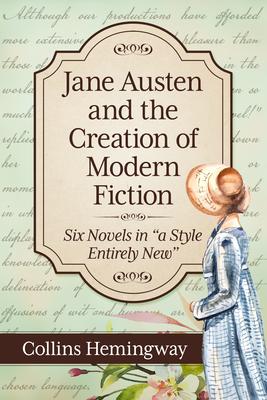Jane Austen's creative process has been largely unexamined. This book explores her development as a writer: what she adapted from tradition for her needs; what she learned novel to novel; how she used that learning in future works; and how her ultimate mastery of fiction changed the course of English literature. Jane Austen overcame the limitations of early fiction by pivoting from superficial adventures to the psychological studies that have defined the novel since. Her creativity and technique grew as she wrestled with pragmatic writing issues. This evaluation of Austen's creative process brings into focus the strengths and weaknesses of her six novels. Each is examined in its use of major fictional techniques--description, scene-building, point of view, and psychological development--to reveal unique literary attributes. The result is a revealing analysis of how world-class fiction is built from the ground up.

Jane Austen and the Creation of Modern Fiction: Six Novels in "a Style Entirely New"
Jane Austen's creative process has been largely unexamined. This book explores her development as a writer: what she adapted from tradition for her needs; what she learned novel to novel; how she used that learning in future works; and how her ultimate mastery of fiction changed the course of English literature. Jane Austen overcame the limitations of early fiction by pivoting from superficial adventures to the psychological studies that have defined the novel since. Her creativity and technique grew as she wrestled with pragmatic writing issues. This evaluation of Austen's creative process brings into focus the strengths and weaknesses of her six novels. Each is examined in its use of major fictional techniques--description, scene-building, point of view, and psychological development--to reveal unique literary attributes. The result is a revealing analysis of how world-class fiction is built from the ground up.